Why Retirement Savings Explode After Age 55 (and How You Can Retire Sooner Than You Think)
Most people assume they’ll need to grind it out until 65. But what if the last 10 years of your career—age 55 to 65—hold the key to retiring early without sacrificing lifestyle?
In this article, I’ll explain why your retirement savings can explode in the final stretch of your career, and why that could mean you’re closer to retirement than you think.
👉 How would it feel to know exactly when you can retire and how much you can spend without running out of money? Let’s talk. In a complimentary call, I’ll walk you through your numbers and show you strategies that could help you retire with more confidence and less stress. Schedule Your Call
Why listen to me?
After working with hundreds of high earners approaching retirement, I've found that many are over-saving and underestimating the power of compounding in their 50s. As a CERTIFIED FINANCIAL PLANNER™, my job is to help you retire sooner, not later—without compromising your values or your sleep.
Summary: Why You May Be Closer Than You Think
- Compound growth starts working for you in your 50s
- Market gains often outpace your new contributions
- Even if you stop saving at 50, your portfolio can still grow dramatically
- Saving "smarter" (not just more) can unlock early retirement
- After-tax accounts, Roth strategies, and tax planning become vital
The Surprising Math Behind Portfolio Growth
Your Contributions vs. Market Growth
When you’re 25, your portfolio grows mostly because of what you save.
By the time you hit your 50s, it’s the opposite: your investments are doing the heavy lifting.
For example:
At age 30, 90% of portfolio growth comes from new contributions
By age 45, market growth may equal or exceed your yearly contributions
By age 55, the market growth may be 5x your contributions
Case in Point:
Let’s say you’re 50 with $1.5M saved. With a conservative 7% return, your portfolio grows over $100K a year without you adding a single penny. Even if you paused contributions, you’d still reach $2.4M by 60.
That’s the magic of compound interest after 50.
Should You Save More... or Reallocate?
If you’re already in good shape, continuing to save like you’re 35 might be overkill. Instead, I advise clients to:
- Rebalance portfolios to protect gains
- Prioritize liquidity for flexibility (think brokerage or Roth vs. 401k only)
- Weigh trade-offs between college, home payoff, and retirement contributions
You might not need to max every catch-up contribution if your money is already working harder than you can.
Smart Moves for Early Retirees (55-64)
Step 1: Max Out Pre-Tax Contributions (Strategically)
Take the tax deduction while your income is highest
2025 401(k) limit: $23,000 + $7,500 catch-up = $30,500
Step 2: Explore Mega Backdoor Roth
Some plans let you contribute after-tax and convert to Roth
Get tax-free growth without income limits
Step 3: Do Roth Conversions (Before RMD Age)
Convert traditional IRA dollars into Roth during lower income years
Step 4: Build a Taxable Brokerage Buffer
Tax-efficient, flexible withdrawals
Helps cover healthcare before Medicare
Step 5: Don’t Underestimate Healthcare Planning
If you retire before 65, your income impacts ACA subsidies
More Roth or brokerage assets = more control over income and costs
Example: What Happens If You Stop Contributing at 50
Age 50 portfolio: $1.4M
Age 55 with continued contributions: $2.4M
Age 55 with no contributions: $2.2M
That’s a ~$200K difference, but if it means paying for a wedding, helping a kid through college, or taking a semi-retirement break, many clients find it’s a worthwhile trade-off.
If you saved aggressively in your 30s and 40s, your portfolio is likely already doing the hard work.
Final Thought: The Permission to Stop Panicking
If you’re in your 50s and feeling overwhelmed, give yourself credit: the money you saved is now working harder than you are. That’s the goal.
Yes, keep saving if you can. But know that cutting back now to focus on family, legacy, or life goals doesn’t mean you’re sabotaging your retirement. It might mean you already won.
👉How would it feel to know exactly when you can retire and how much you can spend without running out of money? Kind of crazy that you just found this blog… and your next step might be booking a complimentary call. In that call, we’ll explore your numbers and see what’s truly possible for you. Schedule Your Call
FAQs
Q: Should I keep maxing my 401(k) after 55?
A: Only if your tax bracket justifies it. Consider diversifying into Roth and brokerage for flexibility.
Q: What’s the Mega Backdoor Roth?
A: A strategy for high earners to funnel up to $66,000 into Roth accounts through after-tax 401(k) contributions.
Q: Can I retire early with mostly pre-tax assets?
A: Yes, but careful planning is needed to manage taxes, sequence of withdrawals, and healthcare costs.
Here is an article from MarketWatch where I was quoted recently that ties in with this
Disclaimer: Case studies are hypothetical and do not relate to an actual client of Lock Wealth Management. Clients or potential clients should not interpret any part of the content as a guarantee of achieving similar results or satisfaction if they engage Lock Wealth Management for investment advisory services.
